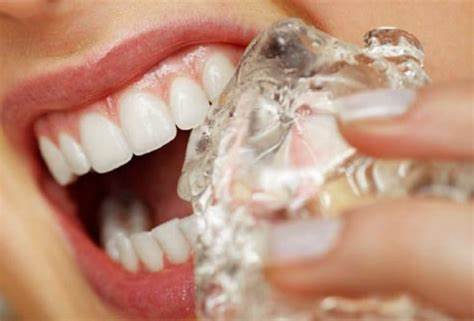
In the realm of modern dentistry, innovative technologies and techniques have transformed the landscape of oral healthcare. From advanced imaging systems to cutting-edge treatment modalities, dentistry has embraced a myriad of groundbreaking developments. Continue reading to learn about a few of the ways that chewing on ice cubes can damage your teeth and put your smile at risk of sustaining damage.
Dangers of Ice Chewing
While the act of chewing on ice may not initially appear as detrimental to your teeth compared to consuming sugary or acidic foods, it can, in fact, result in various issues. These include the risk of cracked or chipped teeth, potential damage to tooth enamel, complications with existing dental work like fillings and crowns, as well as discomfort in the jaw muscles.
Additionally, persistent ice chewing can erode enamel, leading to heightened sensitivity to hot and cold substances and an increased susceptibility to tooth decay. Furthermore, compulsive ice chewing may serve as an indicator of underlying health conditions such as iron deficiency anemia or a condition known as pica, characterized by the consumption of non-nutritive substances.
What to Do Instead
If you’re fond of chewing ice and are looking for strategies to break this habit, consider experimenting with the following techniques:
- Schedule a checkup – This will let you rule out underlying conditions such as anemia or other factors that may be driving your ice cravings.
- Switch drinks – Transition to cold beverages or unsweetened popsicles as alternatives.
- Opt for sugar-free gum – This will offer a satisfying for an oral fixation.
- Allow ice to melt – Letting it gradually melt in your mouth means you can still enjoy the refreshing sensation.
- Consider switching to slush – The smaller pieces are less likely to cause damage.
- Stop using ice – Not putting it in your beverages can reduce temptation to chew on ice.
- Switch to produce – To fulfill the craving for crunchiness, eat carrot sticks, cucumber slices, apple slices, or any crisp alternatives.
How to Fix a Chipped or Broken Tooth
Regular dental checkups are crucial for addressing and mitigating the consequences of ice chewing. If this habit has resulted in a chipped tooth, your dentist will evaluate the extent of the damage and recommend an appropriate solution.
Depending on the tooth’s condition, your dentist may recommend treatments like fillings, crowns, root canals, veneers, or implants. These options address various levels of damage and restoration needs.
While chewing ice can provide a refreshing sensation, it carries the risk of causing various dental issues and may even signal an underlying medical condition. To safeguard your dental health, consider adopting one of the less detrimental alternatives mentioned above. This will allow you to keep your smile in good shape!
About the Practice
For Fort Worth residents, Karen Neil, DDS at Fort Worth Dentistry takes excellent care of your oral health. Serving patients across the DFW Metroplex, they offer top-notch care in a relaxed, stress-free atmosphere and prioritize establishing a trust-based relationship with you and your family. With convenient hours tailored to your busy schedule, you won’t have to miss out on the essential treatments you require. To learn more about the potential tooth damage from chewing ice or how Karen Neil, DDS at Fort Worth Dentistry can provide solutions, contact their office at (817) 738-3368 or visit their website.
